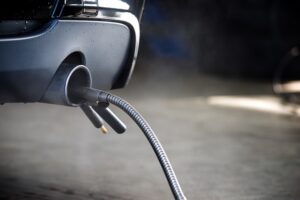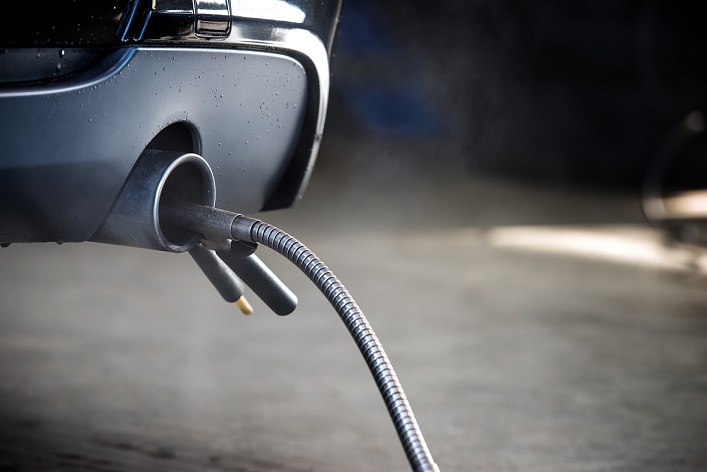PN measurement in PTI: a fact in the Netherlands
 From July 1, 2022, checking DPF by measuring particles in the exhaust of diesel cars will be mandatory in PTI in the Netherlands. It became official by law on January 12, 2021 and the measurement is mandatory.
From July 1, 2022, checking DPF by measuring particles in the exhaust of diesel cars will be mandatory in PTI in the Netherlands. It became official by law on January 12, 2021 and the measurement is mandatory.
A whole process preceded this obligation.
Its origin goes back several years. At the time, a working group was set up with the aim of investigating whether it would be possible to measure particulate numbers in the PTI. The measuring method had to be suitable for PTI, so fast, cheap, and accurate. The working group was named N-PTI. The group started small in Switzerland and grew to about 50 people over time. Participants from Switzerland, the Netherlands, the United Kingdom, Belgium, and Germany participated. Furthermore, manufacturers of garage equipment, as well as new manufacturers specialized in measuring particulate matter, joined the group. In addition, Metrology organizations, the research institute TNO and the Dutch Road Vehicle Authority RDW took part in the working group.
The aim was to study whether it is possible to include particulate number measurement as part of the PTI. The reason was the reports about many malfunctioning filters and illegally removed particulate filters.
During the process, manufacturers started developing particle counters that were suitable for measuring in the exhaust of a diesel cars, TNO investigated which rejection values would be realistic and NMI, together with manufacturers, investigated the specifications of the measuring instrument. It slowly became clear that the goal was attainable. In 2020 the first measuring instrument was approved by the NMi.
In the Netherlands, work was carried out on the introduction of the test for roadside inspections and for the PTI. First it was made possible to use the test during roadside inspections and then for the PTI. In October 2020, the draft regulations in the Netherlands were made public by means of an internet consultation for the public.
Then a political discussion arose. Because the measurement is not prescribed in Directive 2014/45, it is a header on that Directive and thus an administrative burden.
This discussion led to a political compromise being proposed. The original limit of 250,000 particles per cubic centimetre was relaxed to 1,000,000 particles per cubic centimeter. Furthermore, the transitional arrangement for older cars was extended for diesel passenger cars to vehicles up to and including the year of construction 2016. Based on this arrangement, a malfunctioning soot filter can be deregistered at the RDW, after which a test no longer needs to be performed in the PTI. However, more annual tax must be paid.
You will find the exact details of these regulations in the appendices, the documents that have been officially published in the Dutch Government Gazette.


